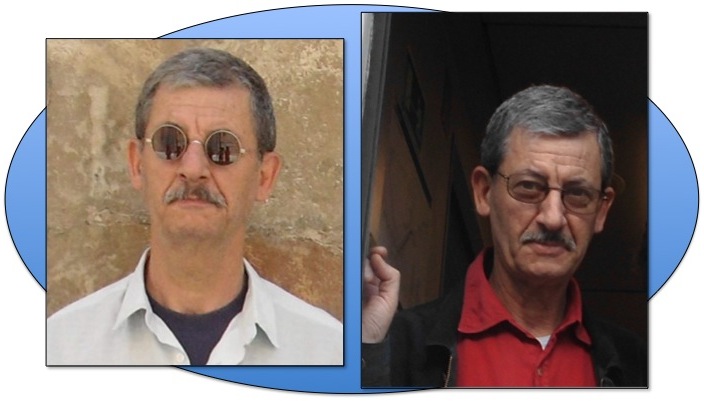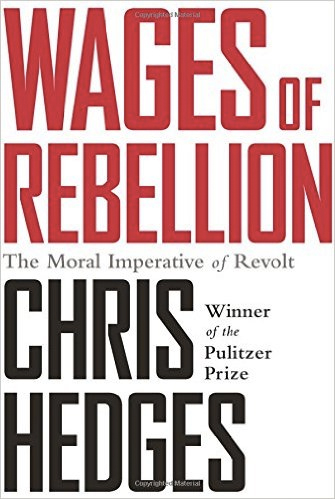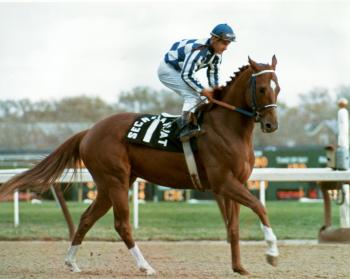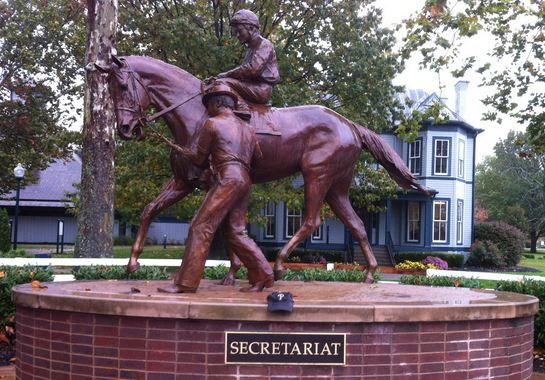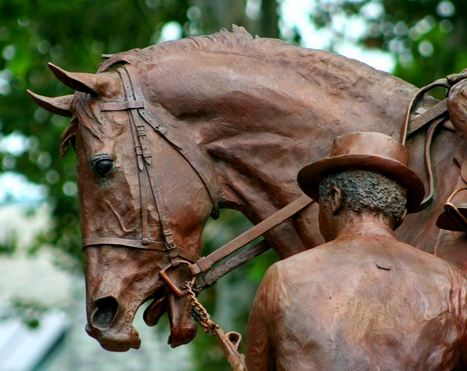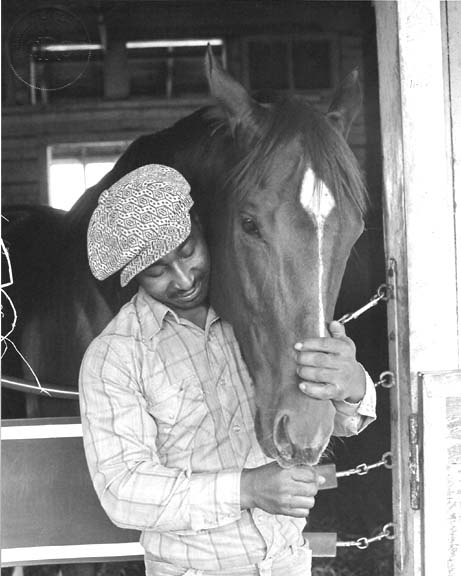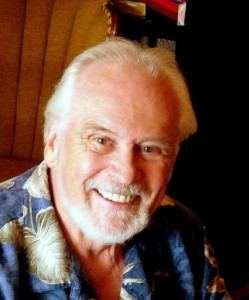
.
(1) Introduction
Frame
He kissed her, lay down beside her on the bed, his face to her face, and tenderly and slowly and gently took her, moving to and fro between the two passages offered to him, finally spilling himself into her mouth which he then kissed again.
“Before I go I’d like to have you whipped,” he said, “and this time I ask your permission. Are you willing?”
She was willing.
“I love you,” he repeated.
“Now ring for Pierre.”
She rang. Pierre chained her hands above her head by the bed chain. When she was thus bound, her lover stepped up on the bed, kissed her, penetrated her again, told her that he loved her, then stepped back onto the floor and nodded to Pierre. He watched her writhe and struggle in vain; he listened to her moans develop into screams. When the tears had finished flowing, he dismissed Pierre. From somewhere deep within she found the strength to tell him again that she loved him. Then he kissed her drenched face, her gasping mouth, released her bonds, put her to bed, and left. (Story of O, Pauline Réage 46)[1]
STORY OF O IS OBSCENE. It reminds me I am a prude with respect to certain standards, because the text often saddens and horrifies me. But there is no denying that I love it, that I have fallen in love with it. It is structurally intricate, and it enacts a philosophical concept I am, for whatever reason—since the genealogy of my interests is as opaque as anybody’s—deeply invested in. Assujettissement is a French term which designates both the process of becoming a subject, a self, and the process of becoming subjected. The two processes are bound in the word, synonymous and simultaneous. The two processes, in the work of the philosopher Michel Foucault, are one. In what follows, I would like to track this concept’s presence in the pages of a text which horrifies me and which excites me and which I love. This is an ambivalent essay: It gulps down so much poison in the process of its merrymaking. The poison is a necessary condition of its merrymaking. One loves to hate, but even critique, which is devoted to the object it criticizes, which lavishes it with the most intense of its attentions, which parasitizes it and assumes it as a basis for synthesis, is love.
~
O is the text’s protagonist. The proper name is visually suggestive. It is a nullity, a zero: nothingness. It is an evacuated figure: ‘empty,’ but also ‘open’ to the outside, a positive feature. It is true that when one considers O, the character, and Story of O, or O, the constitutive text/world that saturates her, allegorically, O’s obscenity eases. In the text, O’s lover presents her for prostitution within the limits of a clandestine, male-run society. O agrees to her prostitution and to the subsequent consequences of her enslavement. Soon torture, which was never supposed to yield pleasure (“[I]f you do tie her up, or whip her a little, and if she begins to like it—then that’s no good either” [Réage 10]), becomes the source of O’s deep subjective satisfaction: “However astonishing it might seem, that she might be ennobled, that she might gain dignity from being prostituted, continued to amaze her. It illuminated her from within…” (Réage 45). It seems as if O’s willed passivity might then be read as having a liberating effect, and that the text could be parsed as an allegory for a liberating form of self-death, or self-overcoming: The self negates itself in order to free itself (perhaps from itself, or perhaps from a power which functions through the self).[2]
It might seem strange to consider self-negation a positive, or necessary, gesture in the first place, but there are a few intellectual frameworks which motivate the idea that it is: Nietzsche, for example, promoted self-death as an anecdote for nihilism; he urged his fellow—though he was loath to call them fellow—nineteenth-century, German subjects to become other than they were, to relinquish their sickliness and become gods. That is to say, he urged them to pull up their pants and make their own values, given that values were nowhere to be found (God was dead, after all). Self-death becomes an even more complicated imperative in light of Foucault’s work.
Foucault, of course, obliterated the difference between the subject and its surrounding social world. The social forces which seem to exist outside the subject actually, in his schema, created its subjectivity in the first place and make use of that subjectivity as a means to their own normalizing ends. No one forces us to behave. We help power along: we regulate ourselves. You are forced to write enough essays as a youth and you might actually come to take pleasure in the process. You begin to write in the absence of an injunction from without. For your own joy. Your joy has been disciplined into you: power enters you and perpetuates itself through you by giving you a skill. In the Foucaultian schema there are different ways that power ‘gets into you’ (though there is no ‘you’ before power generates you, before it sculpts you as an entity with particular capacities and desires).
Disciplinary practices inject themselves into your psyche. For example, in school, you are forced to sit in a certain way, to work in a certain way. You are punished when you deviate from the norms of correctness and appropriateness; you learn how to behave ‘properly,’ which is just to say ‘normally’; you learn how to think ‘well,’ which is just to say ‘normally’; other possibilities are foreclosed.
Social forces are woven into the very texture of selfhood by means of language, or discourse, as well. Language bestows the categories, narratives and logics we use to interpret ourselves and our experience. We are all strangers to language. It precedes us and we ‘pick it up.’ It conditions how we think, what we think, what we can imagine, and in doing so circumscribes what we can be. It was not always possible to be ‘traumatized,’ for example; ‘trauma,’ the category, only came into being at a particular point in history. Sometimes language can pigeonhole us: we need to appeal to a category to be recognized, socially—we need to claim we are ‘depressed,’ say, to get the time off work, to have access to the means of assistance—but the category itself does not quite capture our experience in its particularity and, basically, insofar as we are only what others can recognize or articulate us as, obliterates our particularity (the category is reductive, in other words). My mother was in a rough place, once, and needed help; they wouldn’t let her into the hospital without a diagnosis, without a label of some kind (it’s an administrative thing); they slapped one on (‘bipolar’), and, ever since, my father, who she was in the process of separating from, at the time, has been convinced that she’s ‘crazy’ (at some point, invoking her label, he had convinced all the neighbours to write her off too).
Increasingly, images make up the matter, the texture, of consciousness as well. Think of the anorexic, who experiences her desire for thinness (a social symbol for willfulness and self-control) as the most essential, authentic aspect of who she is. The connections between thinness and willfulness and thinness and self-control have been forged in various cultural documents which are supposedly outside her (glossy advertisements, for example), but she would not be who she is without them; they have laid the ground for the very desires and pleasures which define her, or which she appeals to in order to define herself (these documents are in that sense inside her; they are her).
When the anorexic strives for thinness, understood as a cultural ideal, conformity to which, within certain limits, yields various social rewards, she is acting in ways which further the aims of normalizing social forces; she is subjecting herself to these forces through the very exercise of her agency; social forces have, like a band of bad guys, hijacked her will, have coopted her very pleasures and desires for their own purposes. They can do so because they created these pleasures, these desires, in the first place. Significantly, the anorexic’s agency is nevertheless still her agency. It is precisely because the subject, in Foucault’s story, is thoroughly saturated with subjugating social forces—it is precisely because her agency is just power’s agency—that self-death seems appealing: The anorexic, for example, must literally become another person in order to wriggle out of the particular grip normalizing power has on her: she must stomp out, relinquish, betray her Self, her own desires.
Yet, for Foucault, it is never the case that we fully escape power; power is at all times subjectivity’s necessary condition (if we were not worked over by social forces, we would simply not be selves—we would simply not be). Still, power can function in ways which are more rather than less conducive to flourishing (it might not be so bad, for example, to learn how to write an essay, but it will always suck to starve yourself to the point of death). Social forces, assuming the form of a particular self, manifest as the contents of a particular psyche, mediated and modified by that psyche, can have unanticipated effects. Stated differently, the self, formed by social forces, by power, can, as it exists through time, either sustain these forces or subvert them, can consolidate them or send them swerving off course. Imagine your life as a timeline. You are not the same person over time. You change, and, in the Foucaultian schema (Judith Butler’s version), this means power renovates you, creates you anew. Each time it’s time for a new renovation, each time you die, or teeter on the brink of becoming other than the self you are (or, as Butler would put this, each time you “turn” back on the power that formed you), there is an opportunity: You may come out on the other side of “death” (the self you were is gone, but, biologically, you persist) and it may be the case that you are still power’s bitch, at least as much as you were before. Or it may be the case that you find yourself behaving and experiencing your life in ways which do not seem to simply flow from the self you were or from the particular way you were circumscribed—limited, or delimited, as a subject, a self—by forces beyond you. You’ve swerved. You are still power’s bitch, but to a lesser degree. You’ve hijacked the forces that formed you; they are your calculating and controlling parents and you’ve dashed their dreams, mutilated their vision for you. But, really, it’s not just about you being a rebel (though it doesn’t hurt to be one). Power, mutating as if it had a duplicitous agency of its own, is the same phenomenon—differently described—you’ve reductively recognized as the effect of your will. You didn’t mutilate your parents’ vision; they mutilated their own vision for you. Or: you mutilated it, but they did too.
I mentioned above that Story of O could be read as an allegory for a liberating kind of self-negation (for a subversive kind of assujettissement, or “turn”): O wills her own passivity (or, we might say, dies: she willfully relinquishes her Self); she agrees, at all points in the text, to be a slave, to let her lover’s agency wash over her, and her subjugated state, along with all its accoutrements (pain and more pain), comes to give her great pleasure and satisfaction. On this reading, O “turns” back on the forces that created who she was; she transforms, becoming power’s bitch to a lesser degree. Although I like this idea—Lisa Robertson proposes something like it when, in Nilling, she suggests that O has an anarchic trajectory—in this essay I want to pursue the opposite line of thinking: O still “turns” back on the forces that created her: she “dies” multiple times, or serially becomes a new self, but her transformations do not amount to emancipatory appropriations of power. She comes out on the other side of self-metamorphosis and she’s just as much power’s bitch as she always was. Actually, she’s even more whipped, both literally and figuratively.
As an allegory for a subjugating process whereby selves become selves—as an allegory for a non-subversive kind of ‘assujettissement’—Story of O is meticulously attuned. This is what impresses me about the text, or is the real fulcrum of my fascination with it. I wanted to do a detailed reading that would highlight the ways in which the novel works as such an allegory. My reading hinges on the idea that the presence of pleasure is compatible with the presence of power: Pain might yield pleasure and satisfaction in Story of O, but if power, as a Foucaultian would understand it, produces our very pleasures and desires, then it seems that the fact that we take pleasure in something in no way implies that, with respect to that thing we take pleasure in, we are more, rather than less, free. It is possible to be both perfectly gratified and power’s bitch simultaneously (recall the anorexic, who, after all, is quite pleased with herself; she strives to protect her disease). Pleasure itself, in Story of O, and just in general, is problematic. Agency, in this text, at all points, just is self-subjection. O transforms, again and again, but she transforms stagnantly. That is, O never loses power’s directions; she burns them into her arm and then follows them carefully.

(2) Discourse, Discipline, Subjects, Bodies
The ‘Always Already’ of Power
We begin at the beginning, which has always already begun. The temporal structure of O’s inauguration into slavery is similar to the temporal structure of Butler’s ‘turn.’ The ‘turn’ is just a figure Butler appeals to in order to shed light on the process of self-formation, which is irreducibly enigmatic: The self only becomes itself when it “turns” back and takes up the power which is said to form it; power only becomes power when the self relates to it. There is, of course, something fishy about how the process is formulated linguistically: A self is said to ‘turn’ back on power, and this turning back is supposed to make power what it is. But the self is not supposed to exist “prior” to the workings of power: power, in the Foucaultian schema, is supposed to produce the self. The way “the turn” is formulated in language, then, implies that a self turns back on power before that self even exists, or that power pre-exists itself, since power is supposed to form the self, but it is the self which supposedly makes power possible in the first place by “turning back.” The ‘turn’ is haunted by a postmodern version of the chicken or egg question; it has a mysterious, ‘chicken or egg’ temporal-structure (it’s not clear what comes first; it seems as if both the chicken and the egg come first and come later). The subject seems to precede itself and power does too. In Story of O, power similarly precedes any instance at which power is imposed.
Story of O, in fact, has two beginnings. The text as a whole begins as follows: “One day her lover takes O for a walk…” (3). Having read the text in its entirety, one cannot, upon arriving at this sentence a second time, fail to recall O’s final abasement, for in the last chapter her pubic hair is removed and she is led about naked on a leash. The leash, fastened to an iron ring that Sir Stephen, her second owner, has had permanently attached through a hole made in her left labium, is in fact a dog’s leash (196). An inscribed disk has been attached to this ring and, together, these ‘irons’ “dangle a third of the way down her thigh” (166). “[W]ith every step, [they swing] back and forth between her legs like the clapper of a bell” (ibid). Yet, even before O is physically fitted with a leash and irons akin to dog tags, she is being taken for a walk…
Reading the first version of the introduction, one is struck with O’s vacated quality, with her passivity. She says very little, and what she does say only appears in the text indirectly, as reported. The rest of the text is saturated with René, her lover and first owner’s, utterances, most of which take the form of commands: “Get in,” he says. O enters a suspicious vehicle that has been waiting for them on the fringe of the park. “Unhook your stockings” (4). “Undo your garter belt” (ibid.). O similarly obeys. It becomes clear that she has already learned to anticipate René’s desires: Initially thinking that he is about to kiss her, she slips off her gloves (3). After she has been inaugurated into slavery—this is done at the prison/chateau ‘Roissy,’ which is O’s destination now that she is in the car—and she is allowed to return home, we learn that O knows, from pre-Roissy life, “that her lover likes to find her in the living room by the fire when he comes home in the evening” (61-2); she thus curls up there accordingly.[3] Presumably, this is pre-slavery behaviour as well, and we know that it is common for those who are oppressed to be familiar, not only with the language and manners, but with the preferences of those who oppress them. Perspicacity, in the context of oppression, is less a virtue than it is a survival method (compare Lorde 114). We learn that, even before being trained to make herself constantly and in every way sexually available to Roissy men—her “primary task,” her “only significant duty” is, she is told, “to avail [herself] to be used” (15)—O would never wear anything but a nightgown to bed, or if pajamas, then never the bottoms; this is because René “always slept to her left and, whenever he awoke, even in the middle of the night, he would always reach a hand toward her legs” (32). In the vehicle on the way to Roissy, O is in other ways anticipatory: she is silent and motionless (4), qualities the rules and disciplinary practices instituted at Roissy are meant to instil. Though in the vehicle O is aware that René has not actually forbidden her to do anything, she “doesn’t dare cross her legs or sit with them pressed together” (ibid). It is no coincidence that these are actions expressly forbidden to her once she officially becomes a slave. O, the unfolding narrative, is just a concretization, a physicalization, of what has already taken place in O, the character, psychically in advance.
In the vehicle in the first version of the beginning, O “rests her gloved hands on the seat, pushing down; bracing herself” (4). She is bracing herself for something outside the limits of her own will and agency, something to come, and yet something which, in coming, will make manifest an otherness that is already intimate, that is already her. The car stops in front of the Roissy mansion and, once it does, O, having been denuded in ways appropriate to the occasion—for one thing, her underwear, which would otherwise inhibit access to her, has been taken—is directed to get out and walk, in the absence of an usher,[4] to the door where she will receive further instruction. In this version, significantly, she is trusted to obey; she is already—has already been constituted as—the sort of subject who will obey, who will guide herself, willingly, along the trajectory power has placed her on; she is, that is, already the sort of subject who will experience and understand her self-direction along such a trajectory as a free act. The imagery in the first version of the beginning is, in this respect, noteworthy: René cuts away O’s brassiere, such that, under her blouse, “her breasts are free and naked, like her belly and thighs are naked and free, like the rest of her, from waist to knee” (5; my emphases). Contrast this with the second version of the beginning, in which O is blindfolded and bound before being led up the few steps to Roissy. The co-existence of these two beginnings is consistent with the ambivalent, or paradoxical, structure of subjection/autonomy on the Foucaultian model. Although the temporal constraints of written text make it such that the two versions do not exist for the reader simultaneously, I want to suggest that, insofar as both versions nevertheless exist as ‘the beginning,’ they are essentially equivalent, or participate in a ‘this AND this’ logic: O’s autonomy (she walks to the door by herself) is just O’s subjection (she is gagged and led) differently described. This can be the case when a sinister but remarkably economical form of otherness creates a self which can do the work of regulating itself, of subjugating itself. But otherness is various: subjugating power is one form it assumes, but the self can also transform—itself and power—salvifically when open to, or when injected with, otherness.[5] What sort of otherness inhabits O at Roissy, then? What revenant rears its head there, having always already reared it, in the car and well before it was time for her walk?
Bodies and Souls
Disciplinary power, that reticulate form of power coursing between nodes that are subjects, institutions, and constellations of practice and discourse, takes as its point of application, and manifestation, the body. Reinstituting the temporally dubious figure of the turn, and following Foucaultian parlance, we can say that the body “first” worked over by power is what “then” gives rise to the self-subjugating, and so body-subjugating, soul. Butler suggests that ‘the soul,’ in Foucault, is something discursively akin to the psyche spoken of in psychoanalytic discourse (85): it is an internal, subjective space, delimited partially as a result of what objects are made viable for its investments, or are conversely prohibited. Linguistic categories and the social norms they steep in condition the field of viable investments and prohibitions; normative heterosexuality, for example, and the categories that shelter it make same-sex love objects taboo, and this gesture makes possible certain forms of subjectivity. Underlying Butler’s speculations is a Freudian conception of melancholy in which the loss of an object fallen from grace is denied: rather than cease to love the object, rather than reject and eject it, the ego draws the object into its own ambit where it is preserved and where the hatred that would otherwise be directed toward it is turned against the self. This melancholy, which, in Butler, becomes another figure for the turn of assujettissement, is more figural than experiential: it figures the dynamic foreclosure on which the subject is founded, and, as such, is indicative of a prior discursive curtailment of the field of possible subjective investments. Story of O, while verbose on the subject of disciplinary power’s productive grip on the body, is seemingly reticent on the subject of how discourse is implicated in the production of subjectivity. We rarely, for example, hear how others speak of O, and though the moments they do speak of her are telling—in the social world, the condition she finds ennobling is reduced time and time again to that of a mere whore—I want to suggest that the bulk of the discursive labour in producing O, in her subjection, has to do with a normative heterosexuality that is never spoken of but follows O, in the course of her reflections, where it exists as the trace of an order that is never problematized. Roissy is the allegorical space, the space that is, in a pseudo-sense, prior to the subject, where this tacit discursivity enters the flesh through its training.
Roissy Panopticon
Bentham’s Panopticon is a model prison and emblematic, for Foucault, of disciplinary power as a functioning mechanism. It is an explanatory model, an allegory for a battery of techniques that, through the distribution of bodies in space, through the control of their time and movements, as well as their visibility, produce docile, self-regulating subjects. The fact of the Panopticon’s existence, or inexistence, is thus superfluous; the Panopticon only figures what has already happened more or less invisibly in the social “outside.” Roissy, which O enters and leaves within the confines of the text’s first chapter, is, likewise, I suggest, superfluous. It is significant that it is situated, as far as the unfolding of the narrative is concerned, and like the Panopticon, “prior” to the subject: O was ‘O’, was subjugated, prior to Roissy and would have been O independent of having gone there, where her enslavement was rendered ‘official.’ Stated differently: before Roissy is Roissy still.
Feminine forms of embodiment, like all forms of embodiment, are produced, only the disciplinary practices that produce them are not identical to those spotlighted in Foucault’s discussion of the Panopticon. Sandra Bartky, redressing Foucault’s gender blindness, outlines a handful of practices geared toward producing specifically feminine bodies. The practices she names produce bodies as ornamented surfaces for display, produce bodies of a particular size and configuration, and produce bodies whose gestures and motions are constrained. Roissy avails itself of both these disciplinary practices and those emblematic of the “original” Panopticon, particularly those relating to spatial partitioning and light. Roissy, then, is a torqued panopticon.
.
1. The Body for Display
Immediately upon being admitted to Roissy, O is ‘done up’ by two female slaves; their express purpose is to teach her how, without their assistance in the future, she is to do up herself. They set her hair “just as hairdressers would have” (6), apply her makeup, redden her sex and nipples, and apply a scent to various bodily crevices. The clothing O receives later on is attached to a set of complicated instructions: skirts are to be folded in particular ways and pulled to different heights at different times (a skirt might be tucked up in the back, for example, when she is strolling outside). O is fitted with a collar and wrist bracelets, as well. These are ornamental and instrumental: they are attachable to chains.
.
2. Body Re-sized and Re-configured
O’s first body modification comes after one of the Roissy initiates, having plunged himself into her anus, insists that she is too tight. O is subsequently made, “for eight days in succession,” to wear, during a specific interval in the evening, a dildo “held in place by three little chains attached to a leather belt circling her haunches, held, that is, in such a manner that her internal muscles are unable to dislodge it” (43). Once the dildo is no longer required, Réne, her primary owner at this point—other men use O, but, as he explains, they do so only by proxy, as extensions of him—professes that he is happy that she is “doubly open” (44). After O is passed on to Sir Stephen, her waist is also permanently modified via a successively tightened corset. Once she is through with the corset, her waist is so slim that she seems “ready to break in two” (165). Part-way through the tightening process, it is almost possible “to circle [her] waist with…ten fingers” (149), and yet the width of her waist is nevertheless deemed unacceptable (152).
.
3. The Body Constrained in its Movements and in Space
At Roissy, as I have already mentioned, O is commanded to keep her thighs parted. She must also, for essentially the same reason (she must remain open/available), refrain from sealing her lips. O soon discovers that conforming to these injunctions outside of Roissy is rather difficult and requires “a constant effort of attention…[which] forever reminds her…of what her condition really is” (57-8). In Roissy, the use of her own hands, unless enlisted for male purposes, is denied to her. Men whip her not so much to “make [her] suffer pain, scream or shed tears,” but in order “to confine [her] to [her] bed for several hours every day” (17). When in bed, O is attached to the wall by a chain linked to her neck collar; the length of the chain makes it such that O can “only move to the right or left of the bed, or stand up on either side of the headboard” (23). Iris Marion Young has suggested that women in Western industrialized societies are taught to conduct their activities within an existential enclosure: The space available to them has a greater radius than the space they would typically inhabit; it is as if there is a bubble around them, beyond which they are not permitted to move (see 13). In Roissy we find this lived bubble in the earliest stages of its inculcation.
In the world beyond the text, there may very well be an ambivalence that attends the bubble’s functioning: Young points out that a woman facing perpetual threats of objectification, violation and rape may avail herself of such an enclosure in order to keep others at bay (read: on the outside), that, in other words, the constricting enclosure is precisely where she can remain free (18). There is another impetus to confect the bubble as well: Whereas men are free to walk loose-limbed with long strides, free to leave these limbs agape on park benches when they recline, women luxuriating insouciantly in the same forms of ‘openness’ are purportedly ‘asking for it’ (ibid.). In O, ‘open’ body comportment in women (e.g., open legs, even while sitting, open lips) is likewise a form of so-called ‘asking for it,’ though a mandatory one founded on mandatory feminine complicity. The ‘bubble’ in the text is equally coopted back into the services of subjection: Roissy makes it semi-permeable, such that masculine forces can move in and out, while feminine forces, always already confined within it, can do neither.
.
4. Discipline and Punish: Space, Light/Visibility, Self-Regulation
In Roissy, both the way space and bodies in space are distributed and the way space is ornamented significantly further disciplinary ends. The chateau is a nested, Russian doll of locked wings and hallways. Entry-ways are guarded. The walls in the Roissy hallways are done in red tile. In prisons, and in accordance with certain findings in psychology, blues and greens are deployed on interior surfaces in order to keep prisoners subdued and calm. Red, conversely, agitates, evolutionary theorists speculate because of the connection the colour bears to shed blood.[6] Roissy’s colour scheme, as a disciplinary tactic, then, follows an unconventional prison’s-logic: A psychologically-grating constant, compared, at least, to blues and greens, it is explicitly oppressive. O happens to have the same red tiles in the rooms in her home, a detail which supports the idea that she was steeping in Roissy before she had ever encountered it; seeing the tiles again when she returns home gives her “a shock and makes her heart beat faster” (56).
Roissy also exploits visibility as one of its principle disciplinary techniques, and this despite the fact that the women of Roissy are not scrupulously observed by men at all times. At night, for example, with the exception of a valet who is employed to come in and whip them for a few minutes, they are left chained up alone in their rooms. Even when left to solitariness, however, there is the suggestion that they are, potentially, at any time, being spied on: On page 7, an only quasi-omniscient narrator alerts the reader to the possible presence of peepholes. Peepholes are to Roissy what the central observation tower is to the Panopticon. The observation tower is inhabited either by an all-seeing someone or by no one, though it is impossible, from the prisoner’s location, to determine whether it is one or the other; the prisoner thus finds him/herself pinned to proper comportment: s/he behaves because it is always possible someone is watching. Compared to the Panopticon’s prisoner, the Roissy slave finds herself in an exacerbated predicament: She, like that prisoner, is isolated from other prisoners—she is forbidden to so much as speak to the other women—and she, like that prisoner, is a potential visual constant, positioned so as to never see what is potentially seeing her, and thus located so as to imbibe that potential gaze in such a way that, taken up into her, it forms, “for the first time,” her self-regulating soul or conscience (she behaves too). But there are a number of other ways she is seen without being seen as well: She may be spied on in isolation, is blindfolded when tortured, and, beyond this, is prohibited at all times from looking the men in the complex directly in the eyes. In Roissy, a slave’s gaze is not only directed negatively via prohibition: its range of motion and its corresponding capacity to ‘see back’ is further limited, stream-lined, as it were, toward male members. Literally: The Roissy masters wear ridiculous tights that leave their genitals exposed, O is told, “for the sake of insolence, so that your eyes will look there and nowhere else, so that you will come finally to understand that there resides your master, your lord, to whom all of you is destined, above all your lips” (16).
As Bartky notes in her analysis, the feminine subject produced by power often engages in rituals that produce feminine bodies—she does her makeup, diets, etc.—voluntarily. This is just another way of saying that she has become a self-regulating subject, that her consciousness itself has taken on the structure of the Panopticon: “In contemporary patriarchal culture, a panoptical male connoisseur resides within the consciousness of most women: They stand perpetually before his gaze and under his judgment. Woman lives her body as if seen by another, by an anonymous patriarchal Other” (72). Reading O, one gets the perpetual sense that, conversely, O is regulating herself in the presence of an actual, rather than internalized other, and that, though O does make some effort to refrain from ‘gazing back’ and from crossing her legs—though she is a hopeless recidivist in these regards—for the most part, it is an external agency that is imposing disciplinary rituals on O’s body. Her subjection, in this limited sense, is never converted into an ‘always already subjected,’ and thus vexed, form of agency.
There is a certain sense, then, in which O, the narrative, considered from beginning to end, remains in the allegorical, conditioning space “prior” to the subject, a sense in which Roissy reaches through the text in its entirety, just as the Panopticon, though it is only a figure, is said to permeate society in its entirety. It is no surprise, then, that the Roissy-red tiles show up throughout the text, not only in O’s home, but also in a villa in southern France, where Sir Stephen, once she has passed into his ownership, brings O to vacation, and where the visual economy characteristic of the Panopticon is reinstituted as well[7]: The villa is piece to a larger ploy on the part of both René and Sir Stephen to secure fresh blood for Roissy. They have O bring Jacqueline—a model/actress O knows through work (O is a photographer), whom she also finds irresistibly attractive—so that Jacqueline may be observed and, ultimately, ensnared. Jacqueline’s presence at the villa is also supposed to serve as a means of satisfying Sir Stephen’s desire to see O caress a woman. In line with this, the bedroom O occupies at the villa, and in which she engages sexually with Jacqueline, is separated from Sir Stephen’s “by a partition which looks full but which, behind a trompe l’oeil latticework and trellis, is transparent: by raising a shade on his side, Sir Stephen [is] able to see and overhear everything that [goes] on in the room as if he were standing right next to the bed. Jacqueline, caressed and kissed by O, [is] in full view…” (178). O, in the room, is also fully visible to Sir Stephen, seen by him without seeing (though she hears, senses), and, already invested in her subjection, feels “fortunate indeed to be constantly exposed…constantly imprisoned by his gaze” (194).
~
To be sure, a mix of disciplinary power and sovereign power is at work in Roissy. Or perhaps sovereign power is just enlisted in the service of articulating the allegory of assujettissement via disciplinary power. Sovereign power is a reified power wielded by a subject or some set of subjects over life: it is power to end life. Disciplinary power, in contrast, is faceless, un-wieldable and shelters life, actively producing its signs: if it makes bodies docile, it does so through investiture: it improves them, makes them useful, and in doing so makes them more obedient. We have already come across the suggestion that, in a Roissy-tempered world, the phallus is sovereign; O, subject to this sovereign (through whatever master or owner), dispossessed of her self, is not only, as she insists, “[given] to love,” but also, perhaps, “brought…very close to death” (40). The punishment O is made to suffer (mainly in the form of whip lashings) seems, in some respects, moreover, of the kind a sovereign would mete out: a king quarters the would-be regicide or leaves threatening bodies alive, perhaps lashing them, at any rate marking them publicly so that others know he has the power to bring death, though he refrains from it now. We would expect disciplinary forms of punishment to capacitate rather than scar the body, and although it is true that O and the other slaves are subjected to a ‘corrective’ micro-economy of punishment[8] it is not obvious that they become more efficient, or more skilled, as a result: O tells us that at Roissy she learned “not to be in a hurry” (68). The non-sexual duties women at Roissy perform—“sweeping, putting the books back in place, arranging flowers, or waiting on table” (15)—are, moreover, minimal and undemanding, and this is because their primary, utterly exhausting, and, in the end, ‘only significant duty’ is to make themselves sexually available. Whereas in a Panoptic society a body’s compliance is positively correlated with the level of its induced usefulness, in a Roissy-governed society a body’s compliance increases with use: a docile body, there, is less useful than it is usable. Whatever skill a Roissy slave is imbued with by dint of having to learn new rituals of dress, by dint of having to perfume the body and apply makeup to it, by dint of having to habituate to unfamiliar and uncomfortable modes of bodily comportment are subsidiary to rendering the body visually consumable and physically penetrable. And again, these women, tortured, are possibly brought close to death, and not only the death of the self, “the delirious absence from herself” O insists she is brought close to, in her ecstasy (40). There is a sense, then, in which the power at play in Roissy is negative, annihilating, and yet, it is also conceivable as disciplinary power proper, that is, as productive. It is productive power insofar as it institutes an obedient, self-subjecting, desiring self.[9] This will become apparent as we track O in her subjective development.
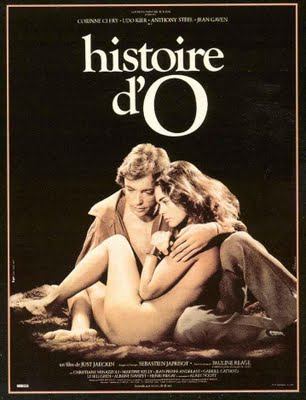
.
(3) Love and Order
If the subject is made possible by subjection, if subjection is, as it were, the subject’s sinew, does it follow that the subject desires its subjection? If the subject is invested in itself, in perpetuating, in iterating itself—these sinews—as a consistency, is this the same as desiring subjection? It is possible that the subject does not conceive of each iteration, of power’s renewal, as self-subjugation, but then, it might come to. It is possible that some other sociality might be scooped up in the subject’s rolling forward, confecting in the subject some other desire, one to sit alongside and antagonize those always already formed. How else might “the subjection of desire require and institute the desire for subjection” (PL 19), and how else might we think the site, the pseudo-fissure in which this requirement might be discontinued? Butler names another desire—the desire for social existence—as a desire exploited (also created?) by power in its institution of the desire for subjection, particularly the kind of subjection accomplished under the banner of an identity category. Perhaps the peculiar relation of attachment one might have to an acquired skill—peculiar because there is a sense in which we are not attached to our skills but are them—is similarly implemented to be exploited (see Bartky 77). Susan Bordo suggests that culturally-concocted anxieties (such as those having to do with weight or body-image) play a similar role: the subject engages, not in what it sees as frantic attempts to regulate itself or maintain its subjection, but in what amounts to the same: frantic attempts to reduce its anxiety. In the logic governing Réage’s text, it is ‘love’ that functions to keep the subject bound, to bind the subject’s desires to the very notion of being subjugated.
Love Logic
O, whipped senseless, then left alone at Roissy, thinks of those engravings in history books in which long-since dead prisoners, having been whipped already, are shown chained to walls. The narrative voice bleeds with her thoughts: “[O] did not want to die, but if torture were the price she was to pay for her lover’s love, then she only hoped he was happy because of what she endured” (27). “Since she loves him,” she has “no choice but to love whatever emanates from him” (33). Since she loves him, she wants whatever he wants, only because he wants it (112). Since he loves her, she consents to torture: “since he loves her, she trembles, acquiescent” (33). These disturbing formulations deserve to be unpacked; they imply that O’s will, O’s consent, though properly her will, her consent, has already been colonized. Her consent is impelled by love, but what is love, and in what respect is it in turn chosen, or not chosen?
René tells O upon her return from Roissy that she must not begin to think of herself as free, “[e]xcept in one sense: she is free to stop loving him and to leave him immediately. But if she does love him, then she is no longer free” (56). This formulation is repeated with an important transmutation at another point in the text: Some time after O is passed on from René to Sir Stephen, the latter tells her: “if you’re mine you have no right to refuse my commands. But you also know you are always free to refuse to be mine” (171). At this point in the text, O does not refuse his commands, for she has come to love him. But between the moment René utters ‘you are free to stop loving me’ and the moment Sir Stephen claims ‘you can refuse to be mine,’ we learn that, within the text’s logic, ‘being owned’ is just what it means for a feminine subject to love: one may not love initially, but once one is owned, one will love. If love is what binds one to one’s ‘being owned,’ then ‘being owned’ is what, in a vicious circle that is not quite tautological, binds one: Not only ‘I am owned, therefore I’m owned,’ but also ‘I am owned therefore I want to be owned.’ ‘I love; I’m owned.’ ‘I’m owned; I love.’ For the masculine subject of Réage’s text, to own, rather than be owned, is what induces love. The narrator reports that René “had so often told [O] that what he loved about her was the object he had made of her, the absolute disposition of her he enjoyed, the freedom that was his to do with her what he wished” (84). In line with this, Sir Stephen, who does not initially love O, comes to love her after he’s abused her body for a time; the more he ‘personalizes’ her body, the more his love grows: he actually only begins to vocalize his love, which O has already detected in non-verbal cues, after he has had her branded with his initials and fitted with custom irons (see 167). The more he loves her, moreover, the harsher his treatment becomes: “insofar as his love and desire for her were increasing, so his demands on her were becoming more extensive, more exacting, more minute” (139). O does not initially love Sir Stephen either, and so when he tells her that she is going to obey him without loving him and without him loving her (89), this gives rise to “a storm of revolt” (89). O fights him, screaming, when he takes her. Resistance to Sir Stephen is possible at this point in a way that, because of the workings of love, it is not possible with René, precisely because she does not love Sir Stephen. And yet, the more he possesses her, the more she finds surrendering to his orders “completely fulfilling” (139) and the more she comes to love him—she is murmuring as much by page 190. By the time René stops loving her—an event that, significantly, caps the gradual cessation of his use of her body (see 147), and a possibility that, before Sir Stephen colonized her body, had caused O great anguish—O no longer cares. O, used all the more brutally by Sir Stephen, has been affectively transferred to him as well:
What was René compared to Sir Stephen? So many ropes of straw, anchors made of cork, so many paper chains: such were the veritable ties by which he had bound her to him…But what reassurance, what delight, this iron ring which pierces the flesh and weighs eternally…the master’s hand which lays you down ruthlessly on a bed of rock, the love of a master who is capable of taking unto himself that which he loves without pity. (185)
In the text, then, it seems masculine love is voluntary in the sense that the masculine subject can choose what it owns, or choose what it wants to own; feminine love, no more the effect of the feminine subject’s will than of her whimsy, is taken. Before Roissy, O was in love with René, and this is because “René threw himself at her like a pirate” (95). More than this, O “revelled in her captivity, feeling…far down into her heart’s and body’s secret recesses, bonds subtler, more invisible than the finest hair, stronger than the cables with which the Lilliputians made Gulliver prisoner” (ibid.), bind her to this pirate. O’s subsequent trajectory with Sir Stephen, then, is only a more torturous recapitulation of O’s trajectory with René, who owns her already but, upon prostituting her for the first time, is “delighted to discover that the pleasure he reaped from [hurting, humiliating, and debasing her] was even greater than he had dared hope, and had increased his attachment to her, as it did hers to him” (33; my emphasis).
Melancholy Miasma
‘Love’ in O is thus a vicious circle looping through what I’ve called masculine domination, on the one hand, and what I’ve called feminine submission, on the other. It ropes these poles together, since a vicious circle self-perpetuates its tightening. Recasting Butler’s account of melancholy gender formation, I would now like to contradict myself slightly, to suggest that love, in O, plays out against a mute backdrop of compulsory heterosexuality, but heterosexuality conceived strangely, so that it is bears no salient, or at least straightforward, connection to either sex or gender categories.
1. Sex, Gender, Proprietors and Property
Less than the idea that male bodies consort with female bodies, and vice versa, invariably, and less than the idea that masculine subjects consort with feminine subjects, and vice versa, invariably, ‘heterosexuality’ in O implies that dominant subjects relate to submissive subjects, and vice versa. It implies that, invariably, owners, who, with respect to the owned, are only (as in exclusively) owners, relate to the owned, who, with respect to their owners, are owned only. I have been calling ownership ‘masculine love’ and the state of being owned ‘feminine love,’ but the text gives us reason to contest these terms. This is because it confuses stereotypical sex-to-gender designations, and does so partly through a second confusion: it beclouds the very terms ‘feminine’ and ‘masculine,’ sometimes with the help of sex-categories.
O seems ambiguously feminine. She is bisexual—her desire for women is described as “strong,” “real,” and “profound” (100)—and though she engages in stereotypically masculine behaviour with her female lovers, her actions are “carefully calculated” and stem “from a certain childishness [rather than] her conviction” (ibid.). When she courts her female friends, she doffs her beret, helps them out of cabs (99), and, in general, displays “tough-guy manners” (95). Beyond this, she relates to women, when she relates to them sexually, as a hunter—her desire for women, we are told, doesn’t “go a great deal further that the thirst for conquest” (95). She admits that she loves “the perfect freedom” she experiences when she pursues women (ibid.), and that what she enjoys about Jacqueline—that is, once the latter has become her lover—is “the use of a girl’s body, a body with no strings attached” (193). Despite all this, she frequently repeats that what she sees in the women she loves is a reflection of her own submissive self (194). Scrutiny can juice this text: Is it a feminine self that sees a submissive reflection, and is it also a feminine self that engages in carefully calculated dominating behaviours, while at the same time feeling subjectively at odds with them? What is the relationship between the subject, its identifications and its overt behaviour, if identification and overt behaviour are equally performance, and the subject is precisely what is performed? What are the relations these terms bear to the subject’s sexed-body? O dis-identifies with the stereotypically masculine behaviour she executes; she is thus not quite dragged into the field of stereotypical designations that open around her behaviour. She is not quite rendered masculine. But if we take performance theories of self seriously, then her masculine behaviour is not quite controvertible, and O is not quite rendered feminine either.
For deconstructive purposes, say that, before she is prostituted, the O we are given access to through O’s recollections does cling to a certain femininity—or at least, to the obverse side of an uneasy masculinity—when she possesses women. If this is so, then it is not exclusively through owning, it seems, that one becomes masculine; nor is it through being owned that, in the text, one becomes feminine. When O concedes that she loves Jacqueline, that she is “no more and no less” in love with her than she has been with many other women, she is adamant that the term ‘love’ is “the correct one…also a strong one” (102). Love is no doubt the correct term, only it must be qualified: it reflects a “thirst for conquest” (quoted above), and so it is love in the form of domination, ownership; it is the same form René’s love for O, and then later Sir Stephen’s, assumes. Thus, in a way, O, as feminine, owns in the text—she sexually possesses women—both before and when she is owned: both before and during the time she is sexually possessed and ‘actually’ owned by René and Sir Stephen. There is a sense in which she is also owned in her capacity as masculine, since she is a slave but simultaneously carries on with Jacqueline in a ‘masculine’ style. Anne-Marie, the head of Samois, the all-female version of Roissy, also owns women: she literally owns at least one girl, Claire. Anne-Marie is harsher than the men at Roissy, and we are given no reason to think that she is not Sir Stephen’s equal. She is an older woman with grizzled hair; in the culture outside the text-world this might signify that she is somehow ‘less feminine,’ and it is true that the gender-sex confusion performed by the text relies largely on meanings primed ‘outside’ the text (though this is a false exterior). In bed, her short hair pushed up by a pillow, Anne-Marie takes on “the look of some mighty nobleman in exile, some dauntless libertine” (162). Insofar as her appearance, her age, her harshness, her power, and her alignment with Sir Stephen superimpose masculinity, they buttress ‘masculine ownership’ in the insufficiently nuanced sense that I use it above; they seed it with purchase. But Anne-Marie is no more bluntly masculine than O; in some respects, she is also stereotypically feminine: She is “tender and gentle with O” in bed (163), and she is also beautiful (159). In Anne-Marie, then, we find both a form of feminine ownership and, unlike in O, a femininity that is at all times cleaved from states of being owned.
Although it seems that female characters can adopt what we can, for explanatory purposes only, call a masculine subject position (e.g., they can ‘own’ in the broad and strict senses of the verb), it is unclear whether they can adopt this subject position with respect to men. It is true that Sir Stephen relates to Anne-Marie as his equal, though he never relates to her as her subordinate. There is perhaps a sense in which male-sexed bodies function as trumps to the ‘gender’ configurations in the text: The freedom O loves when she is pursuing and engaging with women is not the freedom she possesses in her relationships with men: With women, “[s]he control[s] the game, and she alone,” whereas with men, she “never” controls the game, unless she does so “on the sly” (100). But although O controls the game with women, she also, again, sees in them a reflection of her submissive self: “The power she acknowledged her girlfriends had over her was at the same time the guarantee of her own power over men. And what she asked of women (and didn’t return, or so little), she was happy, and found entirely natural that men should be desperate to demand of her” (101). Irrespective of the fact that she dominates women, men seem to weasel their way past O in the power hierarchy, such that it is unsurprising that she is unable to “conceive of giving herself to a girl, the way a girl gave herself to her” (194), but puzzling that other girls are able to give themselves this way to O. O, unlike her girlfriends, can only conceive of giving herself this way “to a man” (ibid.). And yet, she does give herself to Anne-Marie while staying at Samois, albeit perhaps not in the same way that she would give herself to René or Sir Stephen: Anne-Marie does not own her. But then, could we say she is, like any other man affiliated with Roissy, a proxy for O’s owner(s) (see, e.g., 32)? Does O become fused to submission as soon as she enters into a relation with a male-sexed body (even if only through one of its mediators)? Is she also a gendered body when she is so fused? Or is O fused to submission simply when she enters into a relation with a body that owns? How to account, then, for who owns whom in what situation, given that O, too, has the capacity to own? After she is prostituted, O claims “that the girls she caresse[s] belong…by right to the man to whom she belongs…and that she [is] there only by proxy” (ibid.). The corollary might seem to be that a male-sexed body is at the top of the totem pole again, that women own only by proxy, but then Anne-Marie does not own Claire by proxy; rather, the men who violate Claire when she is sent to Roissy will violate her by proxy, in place of, without supplanting, Anne-Marie…
.
2. Culturally Doomed
Sex-to-gender-to-owner/property assignations in O prove unfruitful. In Réage’s book, female bodies can own female bodies and ambiguously feminine bodies can possess ambiguously feminine bodies, but whereas in the non-text world a woman-woman relationship that is also parsed as a ‘feminine subject’-‘feminine subject’ relationship might function to confound the dominant, heterosexual regime (i.e., by proposing a homosexual alternative; Butler PL 165), in the text-world a relationship consisting of a feminine subject owning a feminine subject, since it remains premised on a stringent heterogeneity (that between ‘owner’ and ‘slave’), does not, to that extent, gesture towards an alternative erotic paradigm.
In Butler’s account of melancholy gender formation, which she intentionally hyperbolizes, one becomes feminine to the extent that one blocks women as potential love objects and masculine to the extent that one blocks male love objects. The field of possible erotic attachments becomes constricted in accordance with (heterosexual) cultural proscription—such that one desires precisely what one is not—and the ego forms in and through the process of mourning the loss of these possible attachments. Mourning, in this instance, is neither before nor after the ego: it participates in the very ‘turn’ of assujettissement, constituting the ego it at the same time presupposes. Because the prohibition of possible attachments occurs “prior” to the subject’s inception, the subject’s mourning is not properly experiential.[10] Hence a heterosexual-identified woman may not lament the fact that she does not love a woman, may not be able to imagine herself ever loving a woman, and may experience the paucity of her imagination in this regard as ‘natural,’ rather than as a cultural effect. Culture as an effecting agent disappears at the site of the subject’s emergence: ‘I could never love a woman; that is just the way I am’ (see 181 and 138).
This bizarre, affectless melancholy, ‘gender melancholy,’ exists against a backdrop of compulsory heterosexuality: it is symptomatic of the latter, is enforced by, and also enforces it (140). A specific conception of heterosexuality likewise supports and is supported by ‘love’ as it is configured in Réage’s text, or, more specifically, by the subject-positions that underlie ‘love’: O is unable to relate to, to love, or even imagine loving, ‘a dominant subject’ from anything other than a submissive subject position. She is likewise unable to love, or even imagine loving, ‘a submissive subject’[11] from anything other than a dominant subject position: she wants to pin Jacqueline “to the wall like a butterfly impaled” (104). To love in the text one must either own or be owned, dominate or submit. Attachments that assume a form other than ‘submissive-subject’-to-‘dominant-subject’ are foreclosed by the logic governing the text-world and O is culturally doomed in advance: she is a melancholic subject who does not feel ripped off in light of the fact that love, whether with men or with women, has only the one configuration.

.
(4) Clinamen
O’s Consent
So love is rigid and love compels. The ‘monstrous logic’ Robertson refers to in her discussion of Story of O is precisely the continuous solicitation, on the part of her masters, of O’s consent, but ‘consent,’ in this context, is necessitated by a impelled love, and so we must rethink ‘consent’ outside a paradigm in which the will, the self, and otherness are kept tidy and separate. The boundaries between what is internal and external are fraught. Roissy, as a metaphoric space concretized in the text, is caught up in this chaos; it functions within the subject while simultaneously looming on the horizon as a force that could, but need not necessarily, subdue it: There is an O before O is actually taken to Roissy and Jacqueline might be taken to Roissy, or not.
Can O refuse to be Sir Stephen’s? Not if she is Sir Stephen’s; not if she loves him. Is O free to end her slavery? Once she has entered into the contract she has already been entered into, anyone who finds her uncooperative will bring her back to Roissy (17), a stipulation which seems redundant: There is in fact no need for a return to Roissy, since Roissy is embedded in the subject as love (the very state of being owned) and love’s corollary: compliance. The text, then, leaves very little room for uncooperativeness. O tells René that Jacqueline would never agree to go to Roissy, to which he simply replies, “No? Well then,…they’ll end up taking her there by force” (148). Sir Stephen has already told O that, once Jacqueline is in Roissy, “if she wants to leave, she’ll leave” (124); what troubles this formulation, though, is the notion that Roissy (read: being owned) makes it such that the subject would not want to leave, the notion that “once inside, there would be enough valets and chains and whips to teach Jacqueline obedience” (177). In the text, being caught means it is already too late for resistance. Consistent with this, shortly after coming to own her, Sir Stephen tells O that, in all likelihood, she had not understood what she had agreed to when she consented to be his slave, but that “by the time he taught her it would be too late for her to escape” (90). By the time he teaches her it is indeed too late, for, of all abominations, she has fallen in love.[12]
The formulation ‘if you don’t agree, we’ll force you’ only ceases to be redundant at those junctures in the text in which it is the body that resists. O is asked at various points in time to agree, though the disagreeable details of what she is agreeing to are kept from her: because her body will not be able to endure what is to be done to it, consent becomes superfluous. At Roissy, René informs her: “It’s because it is so easy for you to consent that I want something you can’t possibly agree to, even if you agree in advance…You won’t be able to keep yourself from saying no when the time comes…When it does, it won’t matter what you say, you’ll be made to submit” (33). Sir Stephen similarly asks her to consent to wearing his irons, though he keeps her in the dark about how these are to be applied (120), and concedes beforehand that there is no real question of whether she will or will not wear them: “these were still orders, which there wasn’t the slightest question of O disobeying” (120). Of course, O does agree, for she is already bound in a way that compels agreement; refusal does not even cross her mind (see 74). Still, a rift evolves between what she wants for herself and her body’s responses: her body’s memory of the whip—physical fear of the whip that René had not used but Sir Stephen promises, though without specifying how often—makes it impossible for her to consent to the latter’s ownership immediately (78).
.
Subjective Developments: The Subject Develops
Although at no point in time does O embrace the feeling of the whip, her attitude toward the whip gradually changes. Sir Stephen is the pivot on which O as already-subjugated-subject turns, the textual threshold that streamlines this attitudinal change, along with other major subjective developments. O’s enslavement to Sir Stephen makes Roissy continuous with her everyday life: After Roissy, but before Sir Stephen, O’s life seemed to carry on as usual in the sense that there were no other men who took advantage of her, only René, and in the sense that she was not subjected to regular corporeal torture. With Sir Stephen’s appearance, however, Roissy, understood as a nocturnal dream-world—or as “reality in a closed circle,” “a private domain”— threatens to “contaminate all the habits and circumstances of her daily life, both upon and within her” (77; my emphasis). At Roissy, though O “agreed” to do as René wished, it was nevertheless simultaneously true that she was chained to her bed, chained to various stations, kept naked, whipped unwillingly and subjected to torture. O, at Roissy, was “the lucky captive upon whom everything was inflicted, of whom nothing was asked” (81). In the ‘outside world,’ and even more so with René’s solicitation of her consent to be Sir Stephen’s, O, conversely, experiences herself as fully complicit in her subjection: “Here it was of her own free will that she remained half-naked” (ibid.). Power, at this point in the allegory, is not just power applied to the body; it is power concentrated as consciousness, power that has produced the self-regulating consciousness it is manifest as. As O’s enslavement to Sir Stephen becomes further entrenched, this subjected consciousness becomes increasingly concentrated. The narrative’s unfolding only corroborates O’s premonition upon being asked to belong to him: “What had formerly only been reality in a closed circle…was no longer to be content with outward signs—naked loins, laced-up bodices, the iron ring—but to require the thoroughgoing accomplishment of an act” (77).
Before she has agreed to belong to Sir Stephen, O recoils at the prospect of being whipped, even enjoins the men to spare her from being whipped: “Oh, have pity,” she says, and, “not again, no more of that” (79). Within pages of belonging to Sir Stephen, however, she finds it “necessary, and agreeable, to be beaten” (109). By the time she has gone to Samois to have his irons applied to her, she admits that she likes “the idea of torture,” that, even though she would give anything to escape torture while being tortured, after the fact of torture she is “happy to a have undergone it, and happier still the more cruel and prolonged it has been” (155).
O’s consolidation as a subjected subject is equally manifest in O’s changing relation to Jacqueline. Upon initially being requested (ordered) to coerce Jacqueline into coming to Roissy, O is mortified. She tells Sir Stephen that it can’t be done. Without quite identifying with Jacqueline, O is nevertheless loyal to her, so much so that she is upset when René regards her as he regards any of the Roissy women: O “views as insulting to Jacqueline an attitude she finds perfectly correct and natural when it comes to [herself]” (129). She feels herself “a traitor, a spy, the envoy of a criminal organization” (134), moreover, while attempting to persuade Jacqueline’s mother to allow her to move out, into her, O’s, apartment, from which it’s one step to Roissy. Upon returning from Samois, pierced with irons and cauterized with Sir Stephen’s initials, the noble O has a change of heart. We might say, recapitulating the fictive temporality that the allegory requires,[13] that by the time she returns she has fully internalized the terms of the master’s world: She “enjoys…thinking about how she is going to betray Jacqueline,” having been “insulted by the scornful manner in which Jacqueline had eyed [a condition of which she is proud, that of] a branded and flogged slave” (178). Whatever anxiety, whatever anguish, whatever shame her condition is initially said to give rise to (see 117) has either dissipated entirely or is simply no longer referred to in the nether parts of the text. O’s “secret pride,” the “harrowing pleasure” she initially experiences as a slave (ibid.) is, conversely, carried over; it is perhaps intensified: she becomes “an ecstatic slave” under Sir Stephen (185).
.
Doublings and Uncanniness
1) The Beginning as End
In a way, Sir Stephen’s injection in the text figures a transition point between a body acted upon by power and a body that, having become the prison of the soul, is also a soul that imprisons the body. There are, as I’ve also argued, other respects in which O is always already a subjected subject, or is a subjected consciousness all along, and yet it still makes sense to say that she is a subject whose subjection becomes increasingly intensified as the narrative progresses. The text, in this, and in many other respects, is one of incessant (uncanny) doublings; these doublings nourish the idea that the subject exists iteratively, the idea that it takes up its subjection repeatedly, whether by diverging from it or, as in O’s case, by consolidating it, though in a new, or different way, again.
Roissy, the Panopticon, likewise returns in physical, psychological and phantasmagoric forms to be ‘taken into’ O in new ways, as if it had not been taken into her before: It resurges with Sir Stephen. It resurges with Samois. It resurges in the final scene in which, after midnight, Stephen drives O to ‘the Commander’s’ party, where she is to be put on display: “At Roissy [O] felt herself to be lost as one is at night, lost in a dream one has dreamed before and which begins all over again” (77); en route to the Commander’s party, she passes through yet another nocturnal dreamscape: “there was nothing real in this countryside which night made imaginary” (198). It is not enough, moreover, that she arrives at the party in an owl mask; O must instead metamorphose fully, becoming, in seeming actuality, a mute creature from another world (200-1). The atmosphere at the party is equally oneiric; at the party it is by candlelight that she is ogled at and probed.
The dream space breaks with dawn without breaking, just as Roissy, in the inaugural section of the text, is broken with (O leaves) though it nonetheless sweeps through the rest of text: The men lay O out on a table and possess her “one after the other” (201). Similarly, the narrative does not end. Its ending is instead iterated, perpetually, each time transformed. It is explicitly signalled for the first time midway through the text, with the arrival of Sir Stephen: “Well, here was the end, right here, just where you would have least expected it, and in the most unexpected of all imaginable forms (assuming, of course, as [O] now said to herself, that this was indeed the end and that there wasn’t some other end hidden behind it, or perhaps still a third ending hidden behind the second one)” (76-7), which, as the reader comes to see, there is and are: Beyond the two alternative endings Réage has included, there is an ending each time Roissy resurges, each time O is consolidated: “What distinguished this end [Sir Stephen’s appearance as a potential master] was the way it made recollection topple into the present; and the way, also, that what had formerly only been reality in a closed circle, in a private domain, was all of a sudden about to contaminate all the habits and circumstances of [O’s] daily life” (77). ‘The end,’ it turns out, is, in O, just another figure for ‘the turn.’
.
2) Who is Jacqueline?
As O is—indeed, as ‘the end’ is—successively iterated throughout Réage’s text, it seems O is only further consolidated in her subjection: each iteration only institutes a subjugated state even more grotesque and abominable than the last: there is always another ‘low’ hidden behind the ‘low’ the reader, at the time, might well conceive as ‘the all time.’ One hardly even registers that one has given up hope for O—if there had ever been hope for O, and if one had ever even thought to hope for it—so excessive is the doubling over of endings performed by the text, and so habituating this excess is. As a result, the narrative engine in the latter part of the text is transferred onto Jacqueline: what will become of her? I found myself, in my readerly subject- position, wanting her to be spared, spared the humiliations imposed by Roissy, and spared the pain and abasement afforded by a condition like O’s (some, conversely, might have been titillated to see her ensnared). And yet there are problems with, or at least ambiguities that surround, the formulation of Jacqueline as one who might be spared, as one who has not already been ensnared, as a figure, in other words, of freedom, or of an agency that has not already been compromised.
In some respects, Jacqueline, as a figure of freedom, as the swerve away from a trajectory determined by power, or as the clinamen, understood as a deviation from the rule, intersects the figure of Kristeva’s foreigner. ‘Jacqueline’ is, in fact, only a professional name, “a name for forgetting her real name [Choura] and, along with her real name” (132), her dwelling space, a “sordid and heartbreaking gyneceum” (132), in which she is confined, when she is home, with a “tribe,” or “horde” of women: her family (131). Jacqueline abhors these women (she “would [give] half her life” to forget their ‘hissing’ language [132]); hence she abandons them at the first opportunity: O invites her to move in. Kristeva’s foreigner is similarly one who has abandoned her origins and one who, additionally, though there may be a sense in which Jacqueline does this as well, reinstitutes this abandonment over and over: The foreigner remains perpetually transient (TF 4). “Free of ties with [her] own people,” the foreigner feels “completely free” (12), and also—not unlike O whipped to the point of delirious ecstasy at Roissy—dispossessed of herself: “Settled within [herself], the foreigner has no self.” (8). “Available, freed of everything, the foreigner has nothing, [s]he is nothing” (ibid.). It is not entirely the case that Jacqueline has nothing, for she is “passionately attached to whatever belongs to her—to her rose-colored pearl ring, for example—but absolutely indifferent to what [isn’t] hers” (O 136); the notion of ‘complete’ freedom embedded in this initial construction of the foreigner, moreover, needs, as we by now know, to be nuanced, though in a way that is not radically inconsistent with Kristeva’s analysis: Whatever swerving Jacqueline accomplishes, or fails to accomplish, is nonetheless made possible by power, and, as a result, is never completely divested of its historicity (see Butler PL 195). In a sense, Kristeva rhymes with this thought when she insists that the foreigner is fundamentally melancholic, a “lover of a vanished space, [who] cannot, in fact, get over [her] having abandoned a period of time” (9).
Melancholy is reconfigured in the foreigner; it does not align in a perfect way with melancholy of the kind Butler discusses, which is premised not only on ontological and erotic foreclosure, but on a tacitly negative form of affect. In Kristeva’s text, melancholy is connected to the subject’s formative and (in some ways) insurmountable history, and is also characterized in terms of a happiness that is itself happiness newly conceived, newly articulated: The foreigner cultivates an ethos of indifference and detachment, such that, while unable to fully relinquish the past, she nevertheless “retain[s]…of the past only the game” (TF 38). The affective state that emerges out of this ethos, and that reveals the self as ‘unessential,’ ‘a simple passer by,’ is “[a] strange way of being happy, or of feeling imponderable, ethereal, so light in weight that it would take so little to make us fly away” (TF 38). The foreigner is thus one who lets go, and one who is let go of. O experiences herself as relinquished, but the subjective forms she assumes (the self she was, as well as the self she does, in fact, and to the contrary, become) remain tethered to, informed, determined and limited by, a cultural formation premised on dominance and submission all the while. We have seen that this formation also, within the novel’s logic, thoroughly colonizes ‘love,’ so much so that love can only assume, from a ‘masculine’ position, the form ‘I love you because I own you: what I love is the owned object I’ve made you’ and, from a ‘feminine’ position, the form ‘I love you, therefore I’m yours,’ the equivalent of which, as O’s possession by Sir Stephen attests to, is ‘I’m yours, therefore I love you.’ It is precisely love which Jacqueline, as aloof and insensitive as Kristeva’s foreigner (see TF 7), is shielded from.
Jacqueline is fundamentally narcissistic: she has no need for the kind of reassurance O is, in the initial stages of the text, perpetually seeking out in René: reassurance of his desire for her—O is happy he is so hell-bent on exacting proof for himself of “the degree to which he possesses her” (56), and perhaps this is because his actions afford precisely such reassurance. Jacqueline, conversely, relies on no one: all she needs is a mirror (103). As Butler notes: “Narcissism continues to control love, even when that narcissism appears to give way to object-love: it is still myself that I find there at the site of the object” (PL 187). Consistent with this, Jacqueline takes pleasure in being desired if it is someone useful that desires her, or if it flatters her vanity (129): She receives O’s attentions because she derives narcissistic and physical pleasure from them and does not bother to reciprocate. When she begins to engage sexually with René, she remains similarly self-immersed: “She had never behaved like someone in love with him,” and O cannot help thinking that, even if, as is likely, Jacqueline is as abandoned with René as she is with her, “[her] surrender does not involve her emotions” (184). If love, in the text, is what traps, then it seems the possibilities that fall outside of entrapment can only be animated for one who refuses love (or at least the rigid configuration ‘love’ as it appears throughout Réage’s text). It does seem as if Jacqueline’s aloofness inoculates her, to a certain extent, from what we might call the Roissy-effect: For O, torture eventually just becomes a matter of course: necessary and even agreeable, a source of pride. Once Jacqueline, however, learns of O’s markings and lash-marks, and learns of their source, she is horrified (176). As she sees it, if she does consent to going to Roissy, it will only be to have a look, to observe the freak show (see 177).
There is another moment in the text that counterbalances O’s ‘normalized’ response to her condition as well (O is a freak, but in a Roissy-governed world, perhaps freaks are the norm?): The woman who removes her pubic hair for the Commander’s party also reacts to her scars with horror: she is “scandalized” and “terrified” (197). Is Roissy ubiquitous and normal, then, or is it localized and perverse? The text leaves the answer ambiguous: Even Jacqueline’s adolescent sister becomes enchanted with the idea of enslavement, and, at the Commander’s party, a ‘normal’ young couple approaches O, the owl, O the naked, lacerated, perforated spectacle: The “very young girl” is in a “white dress” that has “two tea roses at the waist”; she is “wearing gilded sandals” (201). She is dressed, in other words, to exude middle class innocence, and yet she listens quietly to ‘the boy,’ who tells her he will have her body desecrated in the same way O’s has been. The girl does not appear upset (ibid.). An inebriated American also approaches O at the party, fondles her, and reacts to her irons with “horror and loathing” (200). It is of course slightly odd to ask ‘What are these ‘normals’ doing at a Roissy affiliate’s party?,’ since Roissy itself is populated by ‘normal people,’ and the population is replete, one deduces, with Roissy members. In this, and other ways, the text insists, if not on the strict identity of, then on continuity between, the ‘normal’ and the ‘perverse.’ Is there, as a result, any room for Jacqueline to manoeuvre, or does the possibility of a swerve hinge on something beyond or outside of these poles, as well as the spectrum between?
Jacqueline is one who reacts to Roissy with horror and disgust. Unlike, O, she does not feel bound to René (and so cannot be bound, through him, to Roissy); she falls in love with a man who is directing a film she is in, and makes plans with him without informing René of these (she has abandoned her origins, and now she is shedding another constitutive influence). As far as she is concerned, it is none of O’s business whether or not she is in love with this man, and she tells her as much when she inquires. O purportedly inquires because Jacqueline’s being in love concerns René, but Jacqueline refuses this claim, volleying with: “What also concerns René and Sir Stephen and, if I’ve understood it correctly, a lot of other people too…is that you are badly seated” (187). O is sitting on her dress, whereas she has been commanded to sit bare-assed forevermore. How are we to read Jacqueline’s retort? Is the ‘what also’ component of the phrase to be taken seriously?: ‘Yes my being in love concerns René, but you are being disobedient, too, so shut up.’ But then, it seems that Jacqueline’s being in love would not concern René in the same way that O’s transgression would, for Jacqueline keeps him at arm’s length, whereas, as long as O loves a Roissy affiliate, as she now loves Sir Stephen, she must act in accordance with its members’ wishes. Jacqueline concerns René insofar as she can break his heart, but it does not seem as if she is owned. Should we read her retort as a refusal, then?: ‘René has no claim to me; the only thing that concerns René is what he has proper dominion over, namely, you and the other slaves.’ And yet, Jacqueline has, by this point in the text, also fallen in love. No longer narcissistically aloof, at least, to her new object of affection, does she risk being carried back (carried forward) to Roissy? In this ‘normal’ world in which she has fallen in love with a film director, a normal boy, is she just another unmarred girl at the Commander’s party?
We can pose the question in a different way if we consider that, in the text, Jacqueline functions as O’s uncanny double. Uncanniness, as Kristeva articulates it, is “a destructuration of self that may either remain as a psychotic symptom [think: repetition/stagnation] or fit in as an opening toward the new, as an attempt to tally with the incongruous [think: swerve]” (MNUB 188). The encounter with the uncanny is an encounter with an Other that is nevertheless familiar and shakes the self in the policing of its own boundaries: it is in fact an otherness in the self that has been ejected through the work of the self’s self-sculpting identifications, such that an encounter with it invites a broadening of these identifications, an expansion of the self’s purview (see MNUB 188-9). The uncanny may refer the subject “to an improper past” (MNUB 183). Before falling in love with René, O was Jacqueline: “indifferent and fickle,” she had merely “amused herself tempting the boys who were in love with her” (94). Her fully narcissistic desire to be desired not only shielded her but actively inflicted pain: it was a weapon (ibid). Subsequently, O’s indifferent and fickle behaviour is referred to, by a guilt-stricken O, as part of her ‘wantonness,’ and as such, as part of the constellation of justifications for her (present) punishment: an improper past, it has been ejected from the subject’s identificatory ambit. It is Jacqueline, then, since she is the representative of this past, who has been ejected from this ambit, and it is no surprise when O, by this time fully sympathetic with René (read: Roissy’s world and its order) and with the vision of sexual relations in which he ought not be love-stricken and desperate, but be dominant, comes to hate Jacqueline for the pain she might cause him.
In Freudian melancholy, the rejected object, again, is not actually ejected; it is rather subjected to a fissioning: it is brought into the ego where the hating energies once directed toward it (by the ego) are broken off from it and redirected toward the self. In Butler’s account, in which melancholy is assujettissement, the trace of the Other as feelings of worthlessness (or self-hatred, or even, calling to mind O, guilt) must be read as a “dissimulated sociality” (181): the various foreclosures performed in and through the cultural delineation of the realm of the possible are actually what occasions “the internal violence [and voice] of conscience” (183). O is guilt-ridden—guilty for prior fickle indifference, guilty for continuing wantonness, guilty for something, at one point we find out, she cannot quite put her finger on: “It…seemed to her that her nakedness was an atonement for something…but for what?” (103). Is her guilt, then, with its ambiguous content, precisely the trace of something foreclosed, something uncanny that, in (re-)erupting, might open O toward the new? And, if it is, then why should this something be ‘fickle indifference,’ as embodied by O’s uncanny double, Jacqueline?
For now, I would like to bracket the fact that ‘fickle indifference’ is not a possibility radically foreclosed in the world of the text[14] and simply ask: Does ‘fickle indifference’ nevertheless swerve? On the one hand, it seems to shield Jacqueline from Roissy. In other ways, it does not, however, and perhaps this is because it does not shield her from the desire to be desired: there are social norms that govern what constitutes a proper object of desire, and we might wonder if, within the domain that is the text, these are always already Roissy-inflected. Jacqueline already knows how to behave like a ‘desirable’ (submissive) subject: “No one would ever need to teach this woman anything: neither to be silent, nor to arch her head halfway back” (103-4). So acquainted is she with ‘the rules of the game’ that she warns O about the danger of wearing garters without a garter belt (“you’re going to ruin your legs” [63]) long before Anne-Marie informs her of the same (e.g., in the form of an indirect prohibition) (143). It is perhaps no coincidence, then, that one of the gowns Jacqueline dons at work, and which O photographs her in, is a gala gown “such as brides wore in the middle ages” (64) and such as only Roissy slaves continue to wear (65). Jacqueline’s fixation on O’s ring even causes O to think it is possible that “Jacqueline had been at Roissy,” and then, significantly, to wonder “why didn’t she too have a ring?” (75). Of course, O did not have a ring (read: iron sign of enslavement) prior to Roissy either: it was only bestowed once she had arrived there, and yet this did not stop René from…taking her for a walk…
Jacqueline is O’s uncanny double, an unfamiliar return of the familiar, to be sure, but if she were to interrupt O’s insularity, this “destructuration of self”—a return to fickle indifference—would perhaps best be thought of in terms of repetition/stagnation, or in terms of, as Kristeva puts this, a psychotic symptom (quoted above): an otherness that is more, rather than less, more of the same. If Jacqueline is not, then, finally, a good candidate for the figure of the foreigner, for the clinamen, then what else could serve as such a candidate? What else could swerve? O fills me with despair precisely because the logic inscribed by the text seems impervious to interruption, to change. The configuration of love itself in the text is inflexible, assuming, as it does, the one form. Our consideration of Jacqueline has revealed that resistance, within the logic of the text, likewise assumes a single form: ‘I love only myself: I do not love at all.’ What makes the text depressing, then, is that it not only forecloses the possibility of alternative configurations of love—positive attachments and forms of influence/interruption/inflection that are not founded on the existence of objects with owners, or on the discursive insistence on ‘intruders’ and the ‘intruded upon’— but also points to stagnation as the only model for a sorry and ultimately self-deceived resistance: narcissism: ‘I am never interrupted, for I do not love at all.’ One’s very existence implies that one has been, in some way, interrupted; one’s narcissism may keep one soldered to what one has always already been made into.
.
The Swerve
If there is an opening in O, then it is an untapped opening at the point of the text’s closure. The narrative voice marooned in white space on a final, un-paginated page reports:
In a final chapter, which has been suppressed, O did return to Roissy, where Sir Stephen abandoned her.
There exists a second end to O’s story. In that version, O, seeing that Sir Stephen was on the verge of leaving her, preferred to die. Sir Stephen gave his consent.
Recall that the text’s beginning is forked as well: either O is blindfolded and marshalled up to the chateau, or she walks to the door herself. These beginnings are equivalent, for an already subjected self’s autonomy is its subjection all the same. Is a similar equivalence to be found in the proposed “endings”? When O is abandoned, does this mean she is no longer owned, and, if so, in what sense does this signify that she is dead? ‘Death’ is dangerous, a vacuous word: The self dies without dying to become another; the self is said to die at the height of pleasure just as much as at the pinnacle of its debasement; O believed she had lost herself, but instead a subjugated self was only being further consolidated. What reason do we have for reading death at this point in the text as signifying new news? No reason at all. No reason: thus it is appropriate that Kathy Acker taps into the text here and veers.
In Pussy, King of the Pirates, Acker provides her own version of O’s narrative. Acker’s O ends up in China, a name for any city, following W, her lover, who prostitutes her. W inadvertently sells weapons to a band of revolutionaries who undermine patriarchy/capitalism, his enterprise; they also beat him up severely, nearly killing him. (This is power making possible what from power strays.) W has abandoned O. Réage’s premise: ‘If Sir Stephen’s not around, then I want to be no more.’ Acker’s premise: “O speaks: If W’s not around, I don’t want to be a whore” (17). Once the revolutionaries storm the English embassy, O’s ‘health’ returns: she learns that W was part owner of the whorehouse, and thus tells us: “I no longer cared what W felt about me: all I wanted was for him to be absent from me” (21). The patriarchal order crumbles and O “[stands] on the edge of a new world” (23).
In another version (same book), O is in Alexandria and catalyzes the revolution herself: “a revolution of whores” (30) to begin “[t]he only thing in the world that’s worth beginning: the end of the world” (27). Acker’s perseveration, throughout the text, on the prospect of a new world order is significant, given, as we have seen, that it is a rigid discursive/ontological order that fortifies a subjugating form of power in Réage’s text. Acker busts open the order consolidated in that text, displacing the phallus—in Acker’s text ‘Pussy’ is king, pirate, O, treasure—displacing, in fact, many things: reason, identity, certainty, consistency. She populates her text with characters and actions that befit the ambiguity of any brink: patriarchal women, decapitated/castrated fathers, bloodthirsty freedom fighters, graveyard dwellers, men who seem to have overcome themselves, readying themselves for the new order, but who are nevertheless insidious, girl pirates who are just as, perhaps even more insidious, vicious, complicit with power… Acker resolves nothing. Instead, she locks the reader into a bemusement that is also a bewonderment: does everything change, or does nothing? Yet the canny whore-pirates of Acker’s text are one step ahead of the melancholic subject confined to Réage’s pages, since they realize that an ontological order constrains what is possible, and therefore must be interrogated: “The weight of culture: questioned and lost” (31).
Part of this interrogation is discursive: “the whores learned that if language or words whose meanings seem definite are dissolved into a substance of multiple gestures and cries…then all the weight that the current social, political, and religious hegemonic forms of expression carry will be questioned. Become questionable. Finally lost.” (ibid.) Elsewhere, the text gestures toward the transformative potentiality of disjunction: “words apocalyptic and apostrophic, punctuations only as disjunctions, disjunctions cut into different parts of the body or of the world” (36). Disjunction: not just the ‘or’ of alternatives as in Réage’s text, for Acker’s text makes use of narrative disjunction, the occasional Steinean period,[15] and, again, a crafty skewing of logic. The pirate/whores’ insight, then, is not only that they must think, or attempt to think, the very order they’ve issued from, but that thinking might involve linguistic rearrangement.
The whores become pirates precisely to perform this interrogation, to pursue the origin of whoredom (the order it’s emerged from) and to change its course (27). In a way, then, Acker’s text offers another formulation of Foucault’s ‘thought thinking itself’:
Thought does exist, both beyond and before systems and edifices of discourse. It is something that is often hidden but always drives everyday behaviours. There is always a little thought occurring even in the most stupid institutions; there is always thought even in silent habits. Criticism consists in uncovering that thought and trying to change it: showing that things are not as obvious as people believe, making it so that what is taken for granted is no longer taken for granted. To do criticism is to make harder those acts that are now too easy. (SIIITT 172)
Criticism does not settle things once and for all, but problematizes a subject’s previously un-problematical proceedings. The subject engaging with criticism is a troubled, dissatisfied, confused, but nonetheless active subject—a fizzing subject, even zealous, and vertiginous, falling, falling ever short of knowledge. In Réage’s text, the otherness that interrupts the self is concretely cultural; in Acker’s text, the otherness the girls quest for, where ‘quest’ is ‘criticism,’ is an otherness beyond the cultural, or at least an otherness under-determined by the cultural. This otherness is ‘thought.’ Thought is figured once in Acker’s book as a red rat named Ratski, who, elsewhere in the text, interrupts as menstrual blood. It is perhaps the pursuit of this other otherness—‘thought’—it is perhaps thought’s opening to thought—that holds out the possibility of a swerve away from Roissy and what it enables. This pursuit, significantly, occurs beyond the border of O’s original story. Story of O, it seems, has inspired the very myths which seek to double back and destroy it, and which, in doubling back, invest it, preserve it. For their very life, they depend on it. Some of us have never aspired to do anything more than pervert and corrupt, to be anything more than bastards and degenerates.
Ratski is fat because everything in the world sits inside her belly because she never sits inside any belly because, if she did, she’d tear right through it. Her fur is red…
No one ever finds Ratski: she lives inside the interstices of the world. Located between red flowers. The name of each interstice is “intellect.”
Ratski’s always on the rag.
…and so the reign of girl piracy began… (Acker 208)
—Natalie Helberg

.
References
Acker, Kathy. 1997. Bodies of Work: Essays by Kathy Acker. London: Serpent’s Tail. Print.
_____. 1996. Pussy, King of the Pirates. New York: Grove. Print.
_____. 1993. My Mother: Demonology. New York: Pantheon. Print.
Andrews, Betsy. 2004. “The Real Story of ‘O.’” Biting the Error. Ed. Gail Scott, Mary Burger,
Robert Glück, Camille Roy. Toronto: Coach House. 216-19. Print.
Bartky, Sandra. 1990. Femininity and Domination: Studies in the Phenomenology of Oppression. New York: Routledge. Print.
Bök, Christian. 2002.‘Pataphysics: The Poetics of an Imaginary Science. Evanston: Northwestern UP. Print.
Bordo, Susan. 2003. Unbearable Weight: Feminism, Western Culture, and the Body. Berkeley: U of California P. Print.
Butler, Judith. 2005. Giving an Account of Oneself. New York: Fordham UP. Print.
_____. 1997. The Psychic Life of Power: Theories in Subjection. California: Stanford UP. Print.
Crozier, W. R. 1996. “The Psychology of Colour Preferences.” Review of Progress in Coloration and Related Topics. 21.1: 63-72. Primo. Web. 12 Aug. 2013.
Deleuze, Gilles. 1988. “A New Cartographer.” Foucault. Trans. Seán Hand. Minneapolis; London: U of Minnesota P. 23-44. Print.
_____. 1988. “Foldings, or the Inside of Thought (Subjectivation).” Foucault. Trans. Seán Hand. Minneapolis; London: U of Minnesota P. 94-123. Print.
Foucault, Michel. 2006. Psychiatric Power. Trans. Graham Burchell. Ed. Jacques Lagrange. New York: Picador. Print.
_____. 2003. “So Is It Important To Think.” The Essential Foucault. Ed. Paul Rabinow and Nicolas Rose. New York: New Press. 170-73. Print.
_____. 2003. “The Thought of The Outside.” The Essential Foucault. Ed. Paul Rabinow and
Nicolas Rose. New York: New Press. 423-41. Print.
_____. 1995. Discipline and Punish: The Birth of the Prison. New York: Vintage. Print.
Giordana, Simona. 2005. Understanding Eating Disorders: Conceptual and Ethical Issues in the Treatment of Anorexia and Bulimia Nervosa. Oxford; New York: Oxford UP. Print.
Heyes, Cressida J. 2007. Self Transformations: Foucault, Ethics, and Normalized Bodies. Oxford; New York: Oxford UP. Print.
Kristeva, Julia. 1991. “Might Not Universality Be…Our Own Foreignness?” Strangers to Ourselves. Trans. Leon S. Roudiez. New York: Columbia UP. 169-92. Print.
_____. 1991. “Toccata and Fugue for the Foreigner.” Strangers to Ourselves. Trans. Leon S. Roudiez. New York: Columbia UP. 1-40. Print.
Levinas, Emmanuel. 2006. “The I and Totality.” Entre Nous: Thinking-of-the-other. Trans. Michael B. Smith and Barbara Harshav. London; New York: Continuum. 11-33. Print.
_____. 1969. Totality and Infinity: An Essay on Exteriority. Trans. Alphonso Lingis. Pittsburgh: Duquesne UP. Print.
Lorde, Audre. 2007. “Age, Race, Class, and Sex.” Sister Outsider: Essays and Speeches by Audre Lorde. Berkeley: Crossing. 114-23. Print.
McWhorter, Ladelle. 1999. Bodies and Pleasures: Foucault and the Politics of Sexual Normalization. Bloomington: Indiana UP. Print.
Réage, Pauline. 1993. Story of O. Trans. John Paul Hand. New York: Book-Of-The-Month Club. Print.
Robertson, Lisa. 2012. Nilling: Prose Essays on Noise, Pornography, The Codex, Melancholy, Lucretius, Folds, Cities and Related Aporias. Toronto: Bookthug. Print.
Young, Iris Marion. 1980. “Throwing Like a Girl: A Phenomenology of Feminine Body Comportment and Spatiality.” Human Studies 3.2: 137-56. PRIMO. Web. 22 Jan. 2013.
.

Natalie Helberg completed an MFA in Creative Writing with the University of Guelph in 2013. She is currently studying philosophy at the University of Toronto. Some of her experimental work has appeared on InfluencySalon.ca and in Canadian Literature. She is (still) working on a hybrid novel.
.
.


















